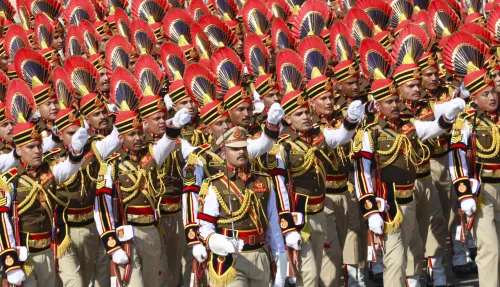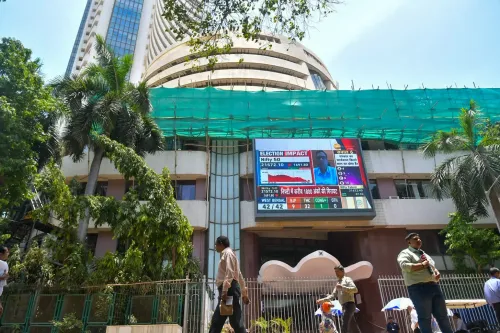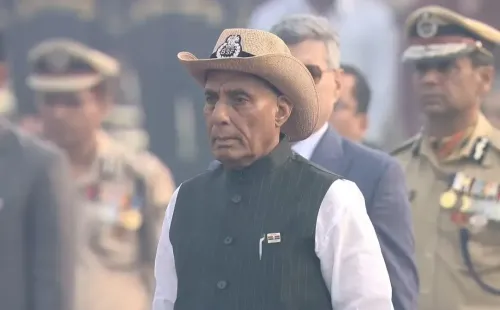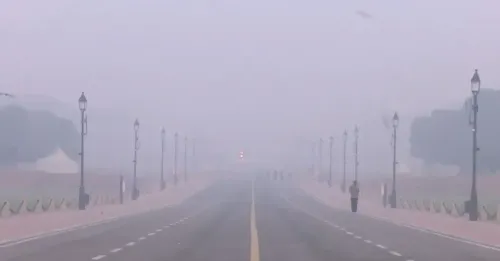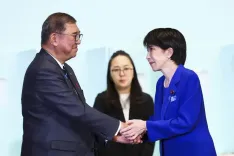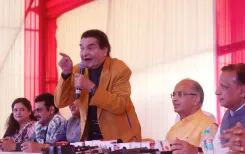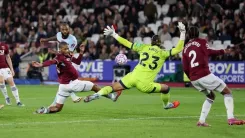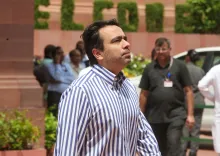Is India Supporting The Positive Developments In The Ukraine Conflict Resolution?
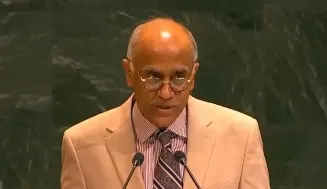
Synopsis
Key Takeaways
- India emphasizes dialogue and diplomacy in resolving the Ukraine conflict.
- Concerns about collateral consequences affecting the Global South are highlighted.
- India's peace diplomacy includes humanitarian assistance and economic support.
- Prime Minister Modi's engagement with key leaders promotes peace initiatives.
- India remains committed to a people-centric approach in its foreign policy.
United Nations, Sep 6 (NationPress) India has underscored the importance of dialogue and diplomacy in addressing the ongoing Ukraine conflict, expressing concern about the collateral consequences of the war, including soaring fuel prices, and highlighting that nations of the Global South are being left to navigate these challenges alone.
India's permanent representative to the UN, P. Harish, reaffirmed the nation's support for efforts aimed at concluding the Ukraine War.
“We backed the Summit meeting in Alaska between US President Donald Trump and Russian President Vladimir Putin. We commend the advances achieved at this Alaska Summit,” Harish stated during the General Assembly session on Thursday.
Trump and Putin convened in Alaska on August 15, initiated by the US President to foster peace.
“India is optimistic about recent positive developments towards peace,” Harish remarked.
He reiterated India's commitment to peace diplomacy, asserting, “India is prepared to support diplomatic initiatives to expedite the resolution of the conflict.”
Harish noted that Prime Minister Narendra Modi’s interactions with Ukraine’s President Volodymyr Zelensky, Putin, and European leaders enhance the likelihood of peace.
Zelensky communicated with PM Modi on Saturday prior to engaging with Putin, indicating on social media that he was open to discussions with the Russian leader.
A meeting between Zelensky and Putin represents the next critical phase in the peace plan outlined by Trump, which has yet to materialize.
“The full involvement and dedication of all parties are essential for achieving enduring peace,” Harish stated during the Assembly's discourse on Ukraine.
He expressed hope regarding Trump's outreach to Zelensky and discussions with European leaders.
“We also acknowledge the subsequent diplomatic measures by the US President in engaging the Ukrainian President and European leaders in Washington,” he mentioned.
Three days post the Trump-Putin summit, Trump briefed Zelensky and European leaders, including France’s President Emmanuel Macron, British Prime Minister Keir Starmer, Germany’s Chancellor Friedrich Merz, Italy’s Prime Minister Giorgia Meloni, European Union President Ursula von der Leyen, and NATO Secretary-General Mark Rutte.
This meeting led to European leaders cautiously endorsing Trump’s endeavors and formulating a framework for a post-conflict scenario.
“We believe these diplomatic initiatives hold the potential to terminate the ongoing Ukraine conflict and pave the way for lasting peace,” Harish stated.
“India has persistently advocated that the route of dialogue and diplomacy is the sole pathway to conclude the ongoing conflict in Ukraine, regardless of how formidable that path may seem,” he added.
Harish addressed the war's collateral damage and repercussions, including escalating fuel costs, affecting the Global South.
Nations in the Global South “have been left to navigate these challenges independently,” and “it is vital that their perspectives are acknowledged, and their legitimate concerns addressed.”
“India’s approach to the Ukraine conflict is focused on people, offering humanitarian aid to Ukraine and economic support to our partners in the Global South, including neighboring countries grappling with economic hardship,” he elaborated.
Harish refrained from overtly condemning Russia’s invasion, echoing PM Modi's implied criticism to Putin: “This is not an era of war.”
Acting US Permanent Representative Dorothy Shea remarked, “The United States, under President Trump, has made remarkable efforts to conclude this war.”
“The subsequent step is for the leaders of Russia and Ukraine to engage in bilateral talks and ultimately reach an agreement to cease hostilities,” she added.
However, she expressed doubts regarding the peace efforts due to ongoing Russian attacks.
Post the Trump-Putin summit, “Russia initiated the second most significant aerial assault on Ukraine since the war commenced,” and “These persistent attacks raise concerns about Russia’s commitment to peace,” she stated.
“Strikes on civilian areas must cease immediately,” she asserted.
Ukraine’s Deputy Foreign Minister Mariana Betsa dismissed the idea of relinquishing territories in a peace agreement, which Trump has proposed.
Crimea and all Russian-occupied regions remain sovereign Ukrainian territory under its Constitution and international law, she emphasized.
“These are the foundational aspects for authentic peace -- peace that must be anchored in reliable security guarantees,” she declared.
Russia’s Permanent Representative Vasily Nebenzya firmly stated that it will retain the territories it has seized.
These regions have historical and cultural ties to Russia, and labeling them as occupied territories is an “erroneous and politically motivated construct,” he contended.

